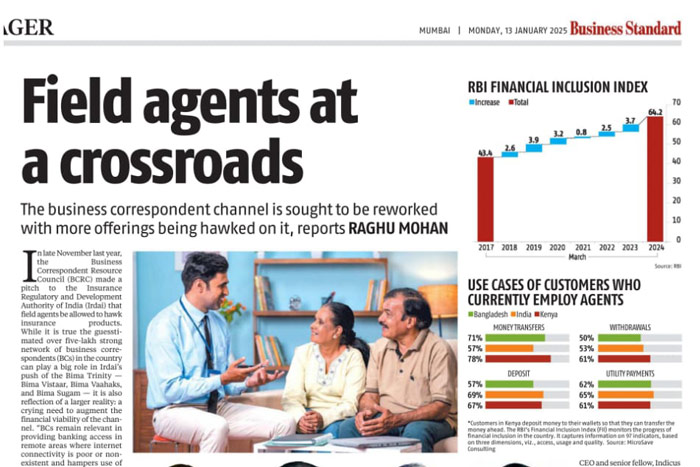The world today is aiming for financial inclusion; that is, bringing everyone under the formal financial system. Financial inclusion gives all businesses and individuals equal access to financial services and products. The main aim of this initiative is to make financial services and products affordable and available to unserved and underserved areas.
In an attempt to reach unbanked areas of the country, financial institutions today are opting for correspondent banking. They are partnering with fintechs and their business correspondents to reach inaccessible areas and onboard new customers, while ensuring there is value addition for everyone involved.
Benefits of Correspondent Banking
This banking approach has received a positive response because it has been successful in serving the unbanked while reducing the bank’s cost to serve these areas. Many stakeholders are benefited from correspondent banking:
- The unbanked poor gain access to affordable financial services
- Banks and financial institutions reach a vast new customer base
- Fintechs and business correspondents are able to maximize on sales volumes
Communities that are unbanked or underbanked are usually in very remote areas. Such regions are inaccessible, lack bank branches, and are difficult as well as expensive to serve. To reach these communities, fintech business correspondents are setting up basic kiosks or using existing outlets like post offices.
This approach has a personal touch as the physical presence of business correspondents establishes a better connect with customers. It’s proven to be very effective. This method is also highly cost-effective as it eliminates the need for building new branches and increases customer base at a lower cost. It also benefits the end-user as these services have lower transaction costs when compared to traditional branches.
The Future of Banking
Organizations around the world are realizing the value of business correspondents and correspondent banking in their journey towards financial inclusion. As decision-makers continue to take efforts to scale financial inclusion, this form of banking is becoming increasingly important as it offers an array of benefits:
- Effective alternative to building bank branches
- Cost-effective banking outlets
- Promotion of social and economic benefits
- Helps a vast population of low-income workers and families improve their lives
While traditional banks and institutions are important, these alone cannot ensure that financial services reach the last mile, or guarantee that those excluded from the formal financial system will get equal access to all services. The model of correspondent banking will, therefore, play a crucial role in advancing the cause of financial inclusion.










